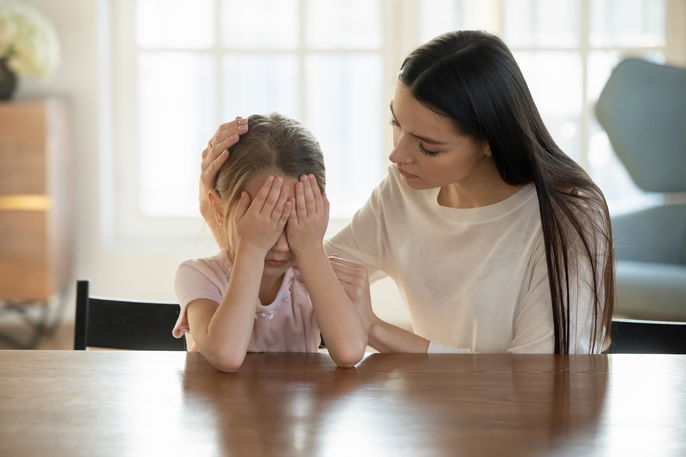Encopresis is the term used to refer to fecal incontinence in children. It typically occurs involuntarily, without the child noticing, and is more common after the age of 4.
Encopresis generally occurs due to constipation, but it can also occur in children who are afraid to use the toilet or who hold their stool to avoid bowel movements, especially when outside of the home.
If encopresis is suspected, the child should be assessed by a pediatrician or a pediatric gastroenterologist. Treatment depends on the underlying cause and may involve diet changes, psychological support, use of laxatives and, in some cases, surgery.

Common symptoms
The main signs and symptoms of encopresis are:
- Spontaneous release of stool into underwear
- Harder stools
- Decreased sensitivity in the anal region
Due to these changes, it is also common for children with encopresis to also have enuresis, which is urinary incontinence at night.
Possible causes
The main causes of encopresis are:
- Constipation
- Discomfort with bowel movements
- Fear or shame of using the toilet
- Difficulty reaching or accessing the bathroom
- Not being able to use the bathroom outside the home
- Avoiding the bathroom even with the urge to have a bowel movement
- Anxiety while learning to use the bathroom
- Diseases such as hypothyroidism, celiac disease or anal fissures
Furthermore, encopresis can be a consequence of the use of some medications, such as antidepressants or opioids.
Confirming a diagnosis
The diagnosis of encopresis is confirmed by a pediatrician, who will assess the child's symptoms and age. This condition is most typically found after the age of 4, as young children may have more difficulty holding stool.
In addition, the pediatrician may order tests to measure thyroid hormones in the blood and/or an MRI, especially when there is a suspicion that encopresis is being caused by diseases such as hypothyroidism or abnormalites in the spinal cord.
Treatment options
Treatment for encopresis depends on the underlying cause. Cases caused by constipation, for example, may require bowel habit reeducation and diet changes, like increasing fruit, vegetable and fluid.
Additionally, the pediatrician or pediatric gastroenterologist may prescribe laxatives in the form of syrup, tablets or suppositories to prevent worsening.
If encopresis is caused by a disease that affects the child's digestive tract, it may be necessary to carry out specific treatment for the disease and, in rarer situations, surgical intervention to allow for normal bowel movements.
Psychological support
Psychotherapy can also be recommended for the treatment of encopresis, especially when psychological obstacles have been identified and interfere with toilet use.
Consequences of encopresis
Encopresis can have negative consequences for the child, especially on a psychological level. It can lead to low self-esteem, irritability or social isolation. Therefore, it is important that, during treatment, parents offer continuous support to the child.






























